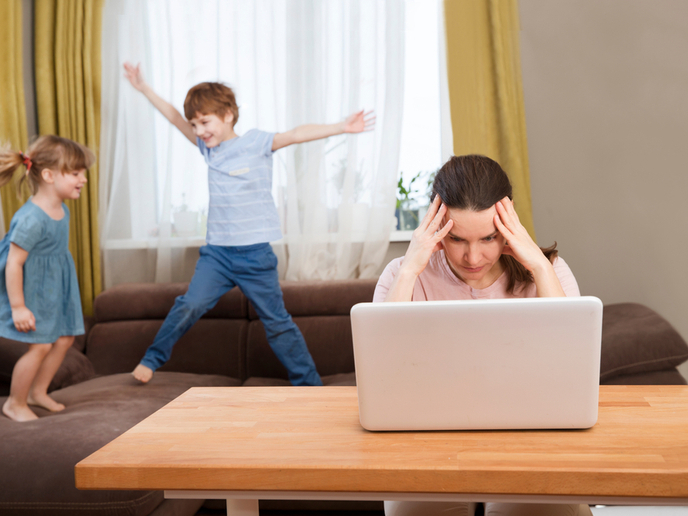Survival tips for families struggling with the coronavirus crisis
Do you feel overwhelmed by having to spend long periods of time isolated at home during the COVID-19 pandemic? Are you a parent facing a period of unemployment or juggling remote working with childcare and home schooling during the coronavirus lockdown? Help is at hand, thanks to a series of open-access online parenting resources provided by a team of EU-funded researchers in partnership with the World Health Organization (WHO) and the United Nations Children’s Fund (UNICEF). Already translated into over 50 languages, these tips derive from evidence-based research, as explained by Prof. Lucie Cluver from the University of Oxford, the EU-funded HEY BABY project host. Quoted in a news release, Prof. Cluver says: “Globally, we are now parenting under extremely stressful conditions. Not only are children and teenagers out of school, but families are living with increased stress, fear and financial worries. All of these make us less tolerant and more irritable.” She adds: “At its most serious, we know that violence in homes increases during times of school closures associated with health emergencies. But this is for everyone who needs and deserves effective parenting support.”
Healthy parenting
Produced by the Parenting for Lifelong Health (PLH) initiative and the UKRI GCRF Accelerating Achievement for Africa’s Adolescents (Accelerate) Hub, together with worldwide organisations like the WHO, UNICEF and the Global Partnership to End Violence Against Children, the parenting tips focus on different issues. UKRI stands for UK Research and Innovation and GCRF is its Global Challenges Research Fund. The 6 one-page tip sheets cover topics like one-on-one time, staying positive, creating a daily routine, avoiding bad behaviour, keeping calm and managing stress, and talking about COVID-19. They are available on the WHO website. Prof. Cluver also says: “Since 2012 our research teams have conducted a series of randomised controlled trials of non-commercialised parenting programmes in Africa, Asia and Europe. The programmes we developed - with WHO and UNICEF - are now delivered in 25 countries globally.” The parenting tips were also highlighted in a letter in the journal ‘The Lancet’. “COVID-19 is not the first disease to threaten humanity, and it will not be the last. We need to utilise effective strategies to strengthen families to respond, care, and protect a future for the world’s children.” The PLH initiative focuses on the development, evaluation and dissemination of parenting programmes to reduce violence against children and improve child well-being in low- and middle-income countries. Managed under the EU-funded RISE project, the PLH covers three eastern European countries: North Macedonia, Moldova, and Romania. The project website states: “PLH members have developed four prototype programs delivered by community paraprofessionals across the child development spectrum: PLH for Infants (prenatal to six months), PLH for Toddlers (6 to 24 months), PLH for Young Children (2-9 years), and PLH for Parents and Teens (10-17 years).” The RISE (Prevention of child mental health problems in Southeastern Europe - Adapt, Optimize, Test, and Extend Parenting for Lifelong Health) project will end in December 2021, while HEY BABY (Helping Empower Youth Brought up in Adversity with their Babies and Young children) will run until April 2024. HEY BABY aims to assess pathways to resilience in adolescent parents and their children in Africa, including those living in resource-constrained, HIV-affected communities. For more information, please see: RISE project website HEY BABY project
Keywords
RISE, HEY BABY, coronavirus, COVID-19, parenting tips



